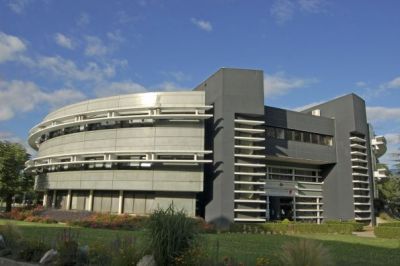A team working on lung cancer at the Albert Bonniot Institute in Grenoble has discovered that aggressive tumors are triggered by the activation of specific genes associated with spermatozoa. A discovery that could lead to better understanding and treatment for aggressive cancers.
The scientists from the Albert Bonniot Institute* in Grenoble focused on often fatal aggressive tumors in order to better understand what sets them off. The key to this aggressiveness was found in the genes contained in each cell. Specifically, in genes which should be inactive and were abnormally activated.
These inactive genes generally function in other tissues or organs and triggering them in the wrong place causes their cell, and thus the tumor, to become extremely aggressive. Sophie Rousseaux, head of research at the Inserm, explains that : « in the case of lung cancer, we were able to identify 26 genes that were associated with very aggressive tumors. »
In order to identify these 26 genes out of 25,000 possibilities, the scientists had to narrow their focus to the genes associated with the production of spermatozoa and ova.
Sophie Rousseaux and Saadi Khochbin, head of research at the CNRS, have been trying to understand the molecular mechanisms of sperm cells for several years. The link between these cells and cancer cells lies in the fact that « cancer cells have the capacity to move, leaving one area to settle in another,« explains Khochbin, « and this is a characteristic only shared with the sperm cell. »
Predicting and understanding the danger
« All cells share the same genes, but each cell uses only certain genes. » says Rousseaux. « This is what defines a tissue’s identity and function. » Trouble starts when genes wake up in cells where they should be asleep. In almost every sort of cancer, scientists have discovered several dozen abnormally triggered genes that are specific to the production of ova and spermatozoa.
Scientists were able to follow 300 lung cancer patients and study 1,700 tumors thanks to a database on lung cancer, compiled by the lung specialist, Christian Brambilla, and the anatomic pathologist, Elisabeth Brambilla, at the Grenoble CHU (Hospital).
A database that offered a gold mine of information for researchers at the Albert Bonniot Institute. « In the case of lung cancer, when none of the 26 identified genes were active, 80% of patients lived after three years. » says Rousseaux.
However, – activate these genes – and the survival rate plummets to zero.
Following these results, American and Korean researchers, among others, followed up on French research and confirmed these findings. With this new information, doctors will be able to adapt their diagnostics and treatment.
« These aggressive tumors have the particularity of being invisible to the organism’s defenses, » says Khochbin. « But these tumors also become dependent on their abnormal genes. If we can neutralize these genes, then we can kill the malignant cells. »
This discovery is important not only for lung cancer, but for all types of cancer. « We delved specifically into lung cancer, but these types of aberrations characterize all types of cancer » explains Khochbin. This has opened the door to future work and scientists are already researching the implications for lymphoma.
Patricia Cerinsek
Translation by Jeremy Burns-Rupp
(*) The team brings together researchers from the CNRS, Inserm, and Joseph Fourier University, as well as clinical and anatomic pathology doctors from the Grenoble CHU (Hospital). Support was provided by the « Institut national du Cancer », the « Ligue nationale contre le Cancer », and the « fondation ARC pour la recherche sur le cancer ».


















